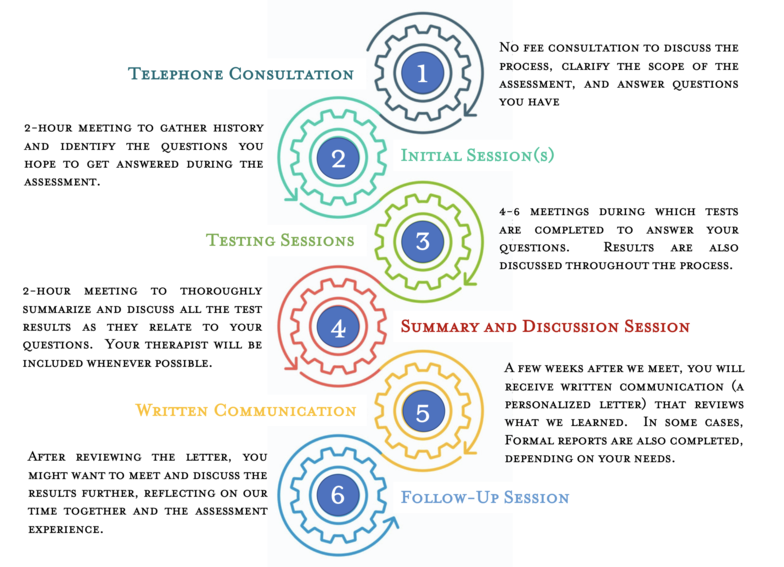Dr. Palm specializes in Collaborative Therapeutic Assessment, an innovative approach to psychological testing which relies on collaboration between the assessor, referring therapist, and client (as well as parents, in the case of child or teen assessments). Together, these members of the "assessment team" work to build hope and understanding, and create positive therapeutic change.
Clients who have participated in CTA report the following benefits:
* Decreased symptoms
* Increased Hopefulness
* Improved Self Esteem
* Increased Satisfaction and Engagement in Treatment
View our Fact Sheets about Collaborative Therapeutic Assessment (CTA) by clicking on the links below:
For more information on the benefits of Therapeutic Assessment, visit the Therapeutic Assessment Institute (TAI).
Collaborative Therapeutic Assessment
6 Steps in the Collaborative Assessment Process
Clinical services offered by Dr. Palm:
An Introduction and Overview to CTA
(Produced by the Therapeutic Assessment Institute)
Traditional "Information-Gathering" Assessment
Psychotherapy Services (for Children, Teens, Young Adults, and Adults)
Psychological assessment is a comprehensive method of information gathering. Traditional psychological assessment can be completed in two or three meetings, or spread out over several sessions. The steps in traditional assessment may include the following and are generally focused on a single question:
1) Initial Consultation to determine the focus of the assessment and collect relevant historical information. This session focuses on the reasons why assessment is being undertaken, current challenges and symptoms, and questions that are desired to be answered. Some standardized questionnaires may be provided for completion at home.
2) Psychological Testing: During testing sessions, standardized assessment measures are administered. These measures will vary depending on the reason for assessment. Sessions may last several hours, spread over several sessions, depending on scheduling, fatigue, and complexity/scope of questions.
3) Feedback: A face-to-face feedback session is provided, along with a written report, during which the assessment results are carefully reviewed. (If a child or adolescent is being assessed, they are invited to participate in the feedback session with their parent/caregiver).
Double click here to add text.
View our Fact Sheets about Traditional "Information Gathering" Assessment by clicking on the link below:
Dr. Palm provides individual therapy on a limited basis to teens, young adults, and adults. He prioritizes a collaborative, trusting, relational, and affirming stance, believing in the value of all individuals.
Dr. Palm’s approach to therapy is humanistic, person-centered and integrative, drawing upon both solution-focused modalities and emotionally focused approaches. His work is further informed by developmental attachment and existential theory, with the understanding that we are shaped by our experiences, but also have the self-determined power and ability to write and rewrite our own stories. Dr. Palm views therapy as a profound opportunity to collaboratively work toward a client’s goals, creating hope, facilitating change, and improving functioning, overall satisfaction, and relationships.











